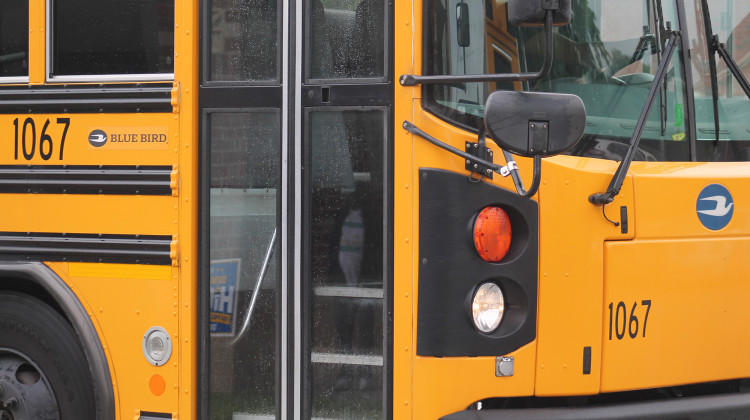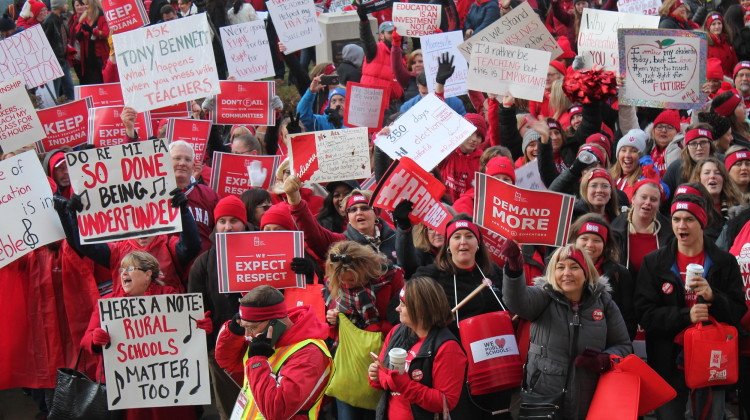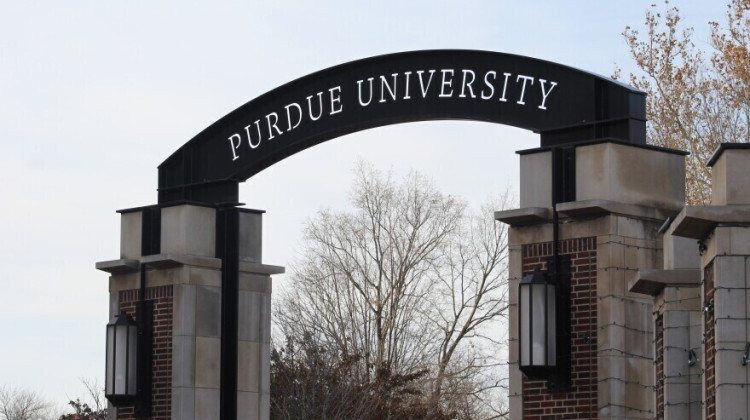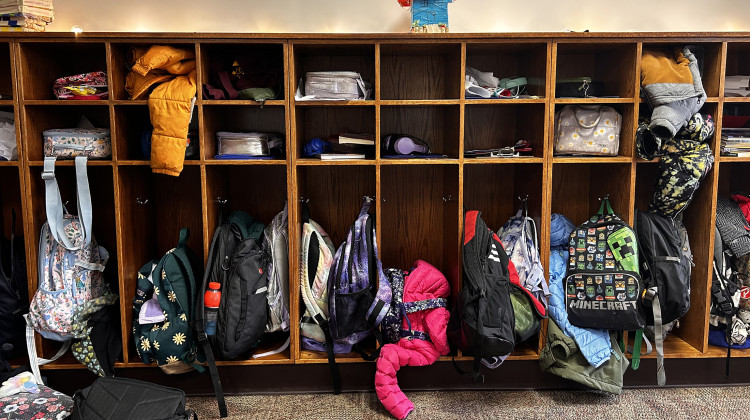
Some Indiana school districts will receive federal funding from the EPA to replace diesel school buses with electric buses.
Lauren Chapman / IPB NewsNine Indiana school districts will receive federal funding for new electric school buses. The Environmental Protection Agency’s Clean School Bus Program awarded more than $11 million for electric school buses in Indiana this year.
The funding is part of a federal program that aims to reduce greenhouse gas emissions, improve air quality and help school districts save money by providing them with grants and rebates for cleaner buses.
The Indiana districts that received the grant this year are Goshen Community Schools, North Central Parke Community School Corporation, Crawfordsville Community Schools, Metropolitan District of Washington Township, Northeastern Wayne Schools, Monroe County Community School Corporation, White River Valley School District, Perry Central Community School Corporation and Greater Clark County Schools.
Six Indiana school districts received rebates last year.
Perry Central Community School Corporation was one of the districts that received funding this year. Superintendent Tara Bishop said the district will use the money to buy two electric buses — the first in their fleet.
“Buses are extremely expensive, and there’s no way we would have been able to purchase an electric bus without the funding,” she said.
Bishop said the new buses will be more environmentally friendly than the diesel buses they’re replacing. Districts that receive the funding are required to decommission at least one diesel bus for each electric bus they purchase through the grant.
“If you're going to buy 20 buses, you have to identify 20 diesel buses in your fleet that you're going to essentially take out of commission,” Bishop said. “You actually even have to destroy the engine of the bus.”
Join the conversation and sign up for the Indiana Two-Way. Text "Indiana" to 765-275-1120. Your comments and questions in response to our weekly text help us find the answers you need on statewide issues.
Bishop said the district will install a docking station to charge the new buses.
In addition to their environmental impact, the EPA program also alleviates the financial strain on some districts to replace school buses. Bishop said the EPA designated her district as a high priority area for electric buses because it’s rural and low-income.
“Any time that we can have funding to support infrastructure – which is what this is – it really helps our community because we don't have very much of a tax base here. And you purchase buses with local property tax dollars in your operations fund,” she said. “Every dollar that we get to help with infrastructure essentially saves taxpayers or allows us to use that funding for other operations expenses.”
Caston School Corporation received a Clean School Bus Program award last year. Superintendent Angela Miller said Caston has been using its new electric bus for about five months.
“We have had the bus since the week right before Christmas break,” she said. “We started using that bus mid-year this year. And so far, everything has worked fine. We use it as a regular route bus, and it really has not had any issues.”
Caston usually keeps buses in its fleet for 12 years. Miller said new diesel buses usually cost around $140,000. With the grant, however, the district only paid $60,000 for its new electric bus. It must keep the electric bus for at least five years to fulfill the grant requirements.
Miller said the electric bus has been more cost-effective than the district’s diesel buses. A normal diesel bus costs the district an average of 75 cents per mile to operate, but the electric bus only costs between 30 and 40 cents per mile. However, the buses battery life is shorter during cold months.
Miller said it will take time to decide whether to replace more of the fleet’s diesel buses with electric buses in the coming years.
“We only have five months under our belt, so it would be nice to evaluate that maybe after a year and see how it's performing,” she said. “We’ve got five years to see whether it performs the same as a diesel bus.”
Kirsten is Indiana Public Broadcasting's education reporter. Contact her at kadair@wfyi.org or follow her on Twitter at @kirsten_adair.
 DONATE
DONATE






 Support WFYI. We can't do it without you.
Support WFYI. We can't do it without you.